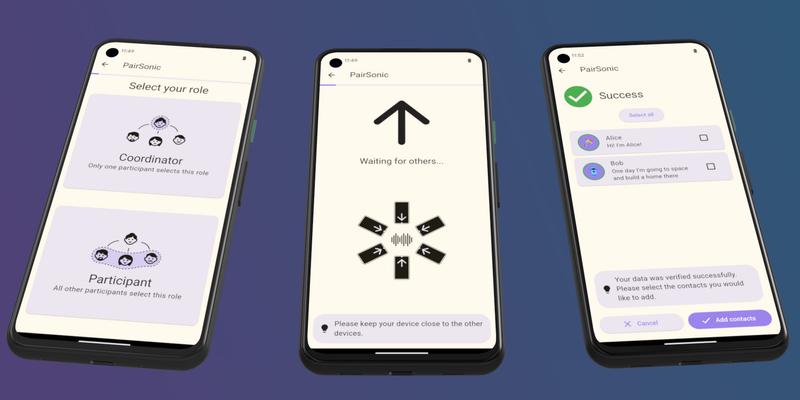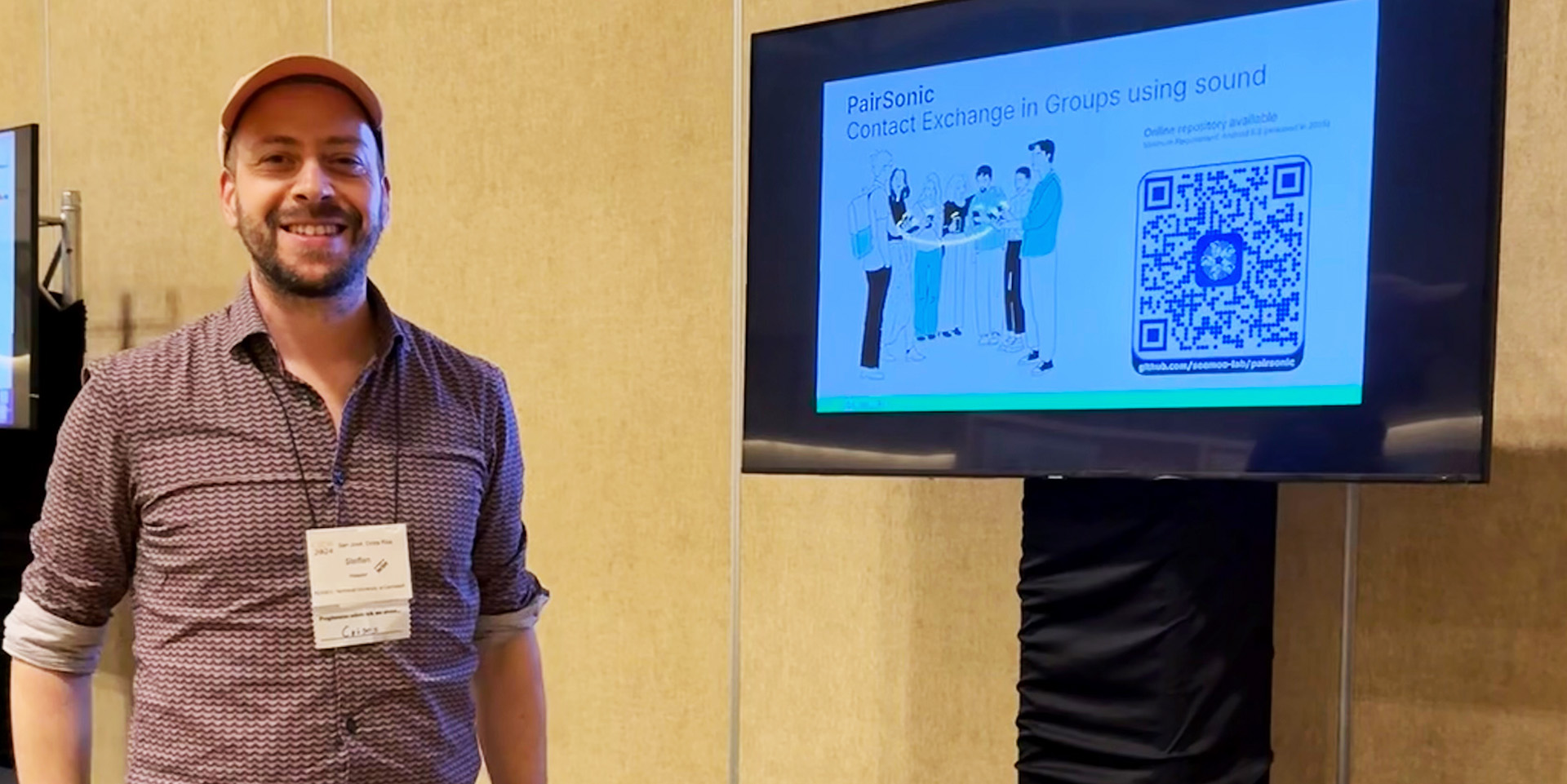Best Paper Award for Smartphone App PairSonic
User-friendly app transmits contact information securely and quickly using sound waves and ad-hoc WiFi
User-friendly app transmits contact information securely and quickly using sound waves and ad-hoc WiFi

emergenCITY scientists Florentin Putz, Steffen Haesler and Matthias Hollick were honored with the Best Paper Award at the ACM Conference on Computer-Supported Cooperative Work and Social Computing (CSCW) in San José, Costa Rica, for their work on the resilient smartphone app PairSonic. With the help of the app, contact information can be exchanged securely, easily and quickly, especially in groups. It can also be used in crisis situations, as no Internet is required for transmission.
“The award is a great honor,” Steffen Haesler said, researcher at the LOEWE center emergenCITY and the Chair of Science and Technology for Peace and Security (PEASEC) at TU Darmstadt, who presented the work in a lecture and presentation in the Central American city on Tuesday, November 12. CSCW is one of the most renowned conferences in the interdisciplinary field of research that deals with technologies for cooperative work. Only one percent of the papers submitted to the conference receive the award.
“We were really pleased that our work on the topic of usable security, which was interdisciplinary in nature, was recognized. It combines human-computer interaction with IT security,” Florentin Putz said, researcher at the LOEWE center emergenCITY and the Secure Mobile Networking Lab (SEEMOO) at TU Darmstadt.
PairSonic was developed in collaboration with SEEMOO and PEASEC and as a result of joint research in the emergenCITY mission ReSON.

Steffen Haesler presented PairSonic during a live demonstration at CSCW in San José. Copyright: Steffen Haesler
If you want to share confidential, sensitive or very personal information with friends, family or colleagues via messenger services such as Signal or WhatsApp, you don’t want anyone else to read it. That’s why messages are encrypted end-to-end. To make sure that the person behind the smartphone is the person you trust, it is possible to verify contact details. This authentication ceremony, for example by matching numbers or QR codes, is often complicated and cumbersome. It is also very time-consuming for groups, as people have to be confirmed in pairwise.
PairSonic overcomes these hurdles. The open source smartphone app enables communication via acoustic transmission and an ad-hoc WiFi, which is a decentralized network that can be set up without the Internet. People only need to hold their devices together for a few seconds. The smartphones then transmit their data via the integrated audio hardware, namely audible sound waves. Larger groups can also verify each other quickly and easily using the app.
“The acoustic transmission is used to connect the devices with each other and set up the temporary wireless network. It also provides an additional layer of security to ensure that the contact data transmitted wirelessly is really authentic,” Florentin Putz explained. All data is sent in encrypted form so that uninvolved third parties cannot intercept it. For places where the process should be silent, such as in a library, the transmission works via inaudible near-ultrasonic frequencies.
Florentin Putz shows how the acoustic transmission sounds like and what advantages PairSonic offers for groups in an explanatory video.
CSCW Awards
YouTube video about PairSonic
PairSonic overview page
F. Putz, S. Haesler, and M. Hollick. 2024. Sounds Good? Fast and Secure Contact Exchange in Groups. Proc. ACM Hum.-Comput. Interact. 8, CSCW2, Article 425 (November 2024), 44 pages. https://doi.org